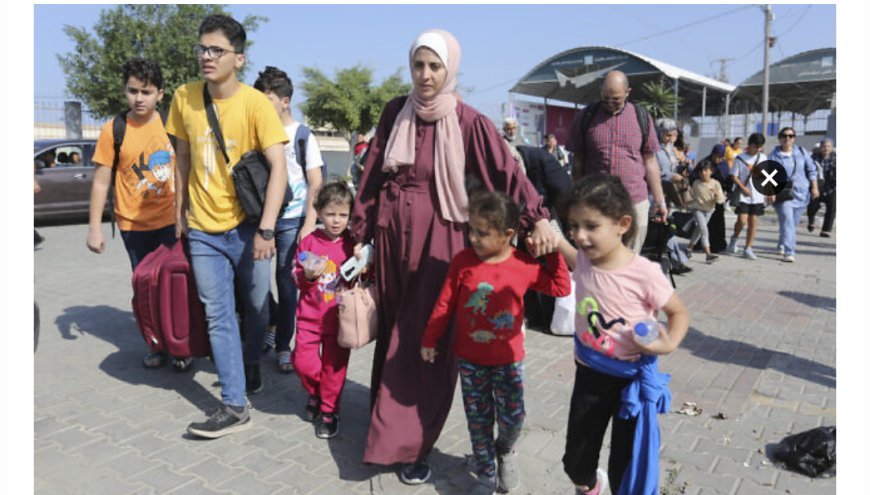What is The Conflict Between Israel and Gaza:and top reasons
The Conflict Between Israel and Gaza: A Complex and Ongoing Struggle
The Conflict Between Israel and Gaza: A Complex and Ongoing Struggle
The conflict between Israel and Gaza remains one of the most enduring and complicated disputes in modern history. Rooted in a web of historical, political, and religious tensions, this conflict has had a profound impact on the lives of millions and has drawn international attention for decades. The war in this region is characterised by cycles of violence, failed peace efforts, and deep-seated animosities.
The roots of the Israel-Gaza conflict can be traced back to the early 20th century, with the rise of nationalist movements among both Jews and Arabs in Palestine. The establishment of the state of Israel in 1948, following the United Nations' partition plan, led to the first Arab-Israeli war. The war resulted in the displacement of hundreds of thousands of Palestinians, an event they refer to as the Nakba, or catastrophe. Gaza, a narrow strip of land along the Mediterranean Sea, became a focal point of this displacement, with a large number of Palestinian refugees settling there.
Following the 1948 war, Gaza came under Egyptian administration until 1967 when Israel captured it during the Six-Day War. Since then, Gaza has been a flashpoint in the broader Israeli-Palestinian conflict. The Oslo Accords in the 1990s, aimed at achieving a two-state solution, brought a brief period of hope. However, the peace process stalled, and violence resumed.
A significant turning point came in 2005 when Israel unilaterally withdrew its settlers and military from Gaza, effectively ending its occupation. Despite this, Israel maintained control over Gaza's borders, airspace, and maritime access, which led to ongoing tensions. In 2006, Hamas, an Islamist militant group, won the Palestinian legislative elections and subsequently took control of Gaza in 2007 after a violent conflict with the rival Fatah party. Hamas’s control of Gaza introduced a new dimension to the conflict, with frequent clashes between Hamas and Israeli forces.
The wars and skirmishes between Israel and Gaza have been marked by their asymmetry. Israel, with its advanced military capabilities, has carried out numerous airstrikes and ground operations in Gaza, often in response to rocket fire from Hamas and other militant groups. These military operations have caused significant civilian casualties and destruction in Gaza, drawing widespread international condemnation and raising concerns about violations of international humanitarian law.
Conversely, Hamas and other militant groups have employed tactics such as launching rockets and mortars into Israeli territory, targeting civilian areas. These attacks have created a climate of fear and insecurity in Israeli communities near Gaza. Israel’s Iron Dome missile defence system has been effective in intercepting many of these rockets, but the psychological and economic impact on Israeli civilians remains substantial.
The humanitarian situation in Gaza is dire. The territory has been under a blockade by Israel and Egypt since 2007, severely restricting the movement of people and goods. This blockade, coupled with repeated cycles of conflict, has devastated Gaza’s economy, infrastructure, and public services. The population of over two million people faces high unemployment rates, poverty, and limited access to essential services such as healthcare, clean water, and electricity. The humanitarian crisis has been exacerbated by internal political divisions and governance challenges within Gaza.
Efforts to resolve the Israel-Gaza conflict have repeatedly faltered. Various international initiatives and ceasefire agreements have been attempted, often brokered by Egypt, the United Nations, and other international actors. However, these efforts have typically resulted in temporary lulls in violence rather than lasting peace. The core issues, including the broader Israeli-Palestinian conflict, the status of Jerusalem, the right of return for Palestinian refugees, and mutual recognition, remain unresolved.
The international community remains divided in its approach to the conflict. While many countries and international organisations advocate for a two-state solution, achieving this goal seems increasingly elusive. The United States has traditionally been a strong supporter of Israel, while other countries have emphasised the need to address Palestinian rights and sovereignty. The situation is further complicated by regional dynamics, with various Middle Eastern states having their own interests and alliances that influence the conflict.
In conclusion, the war in Israel and Gaza is a multifaceted and deeply entrenched conflict with no easy solutions. It is driven by historical grievances, political rivalries, and social and economic disparities. The human cost of the conflict is immense, with countless lives lost and a pervasive sense of despair among the affected populations. Achieving peace will require sustained and concerted efforts from both parties, as well as the international community, to address the underlying causes and work towards a just and lasting resolution.
What's Your Reaction?








